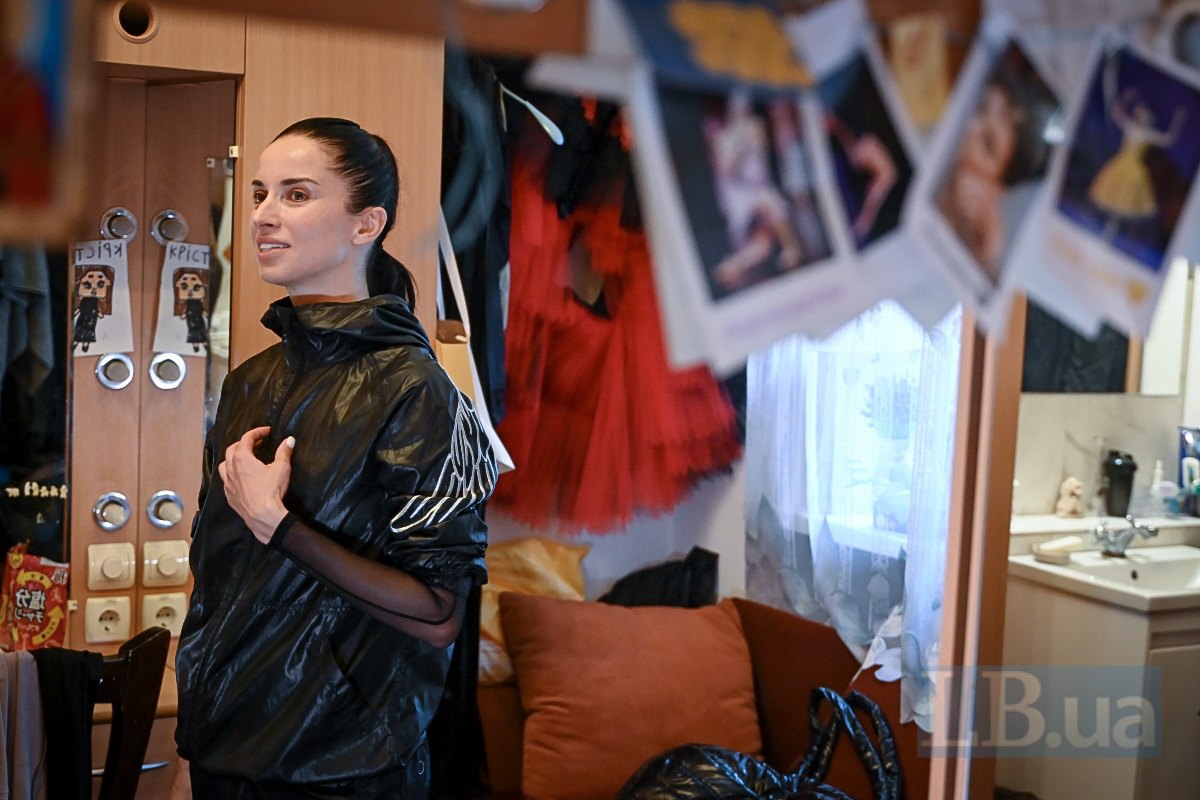
“If you dance classical ballet, it never gets boring. And every time you perform it, you do it differently.”
Our main focus is cultural diplomacy, so let's start with tours. You have performed in a huge number of countries, from European to Latin American. Tell us how tours are organised. How are countries chosen for performances?
There are different types of tours. For example, if the National Opera goes on tour, it is the National Opera company itself. Another type is when artists from different countries and theatres are brought together for a project. This is very interesting because the world of ballet artists is not that big. I mean, there are not that many large theatres. The same goes for tours. And it's always a surprise who you'll meet. And then you arrive and you already know some of the artists because you've met on other projects. A ballet community is formed. And you feel like a citizen of the world. Almost every country, every theatre knows you, and you interact with each other. And each country and even each theatre has its own technique, its own directions, and this exchange is also important. Guest teachers come from different countries and are mostly of a high level. So you went on tour and learned something new. This is professional growth. And you come home a different person, and your colleagues feel it.
But after the pandemic, this market has declined significantly, and then there was a full-scale invasion and bans. Therefore, work has become less interesting, we do not have strong interaction with Europe. And I think that's a problem. We have not yet managed to establish this contact. That is, you can say anything you want to the outside world, but in fact, only a few projects are being performed.
How can you not hate a performance that you dance countless times on tour and have to convey its novelty to the audience every time?
It depends on where you dance, with whom and what you dance. For example, if you dance classical ballet, it doesn't get boring. And every time you perform it differently, there is always something to work on, because it is the foundation. And if it's gala concerts, it's a mini-competitive environment. Everyone is in a good mood there. There is excitement. Now this courage is lacking, and this period has dragged on.
For a long time, there was a competition named after Serge Lifar in Ukraine, which had a distinguished Ukrainian and international jury. You danced in this competition in Kyiv and won a gold medal. Did you know about Serge Lifar at the time, did he mean anything to you?
I knew about his life in theory, but of course not as much as I do now. Nowadays, there is more interest in such figures who shaped our culture. Unfortunately, we don't have a systematic approach to this. By the way, at the time, we weren't really told why the competition was named after Lifar or what his influence was. So we saw it more as an opportunity to show ourselves, as a professional platform.
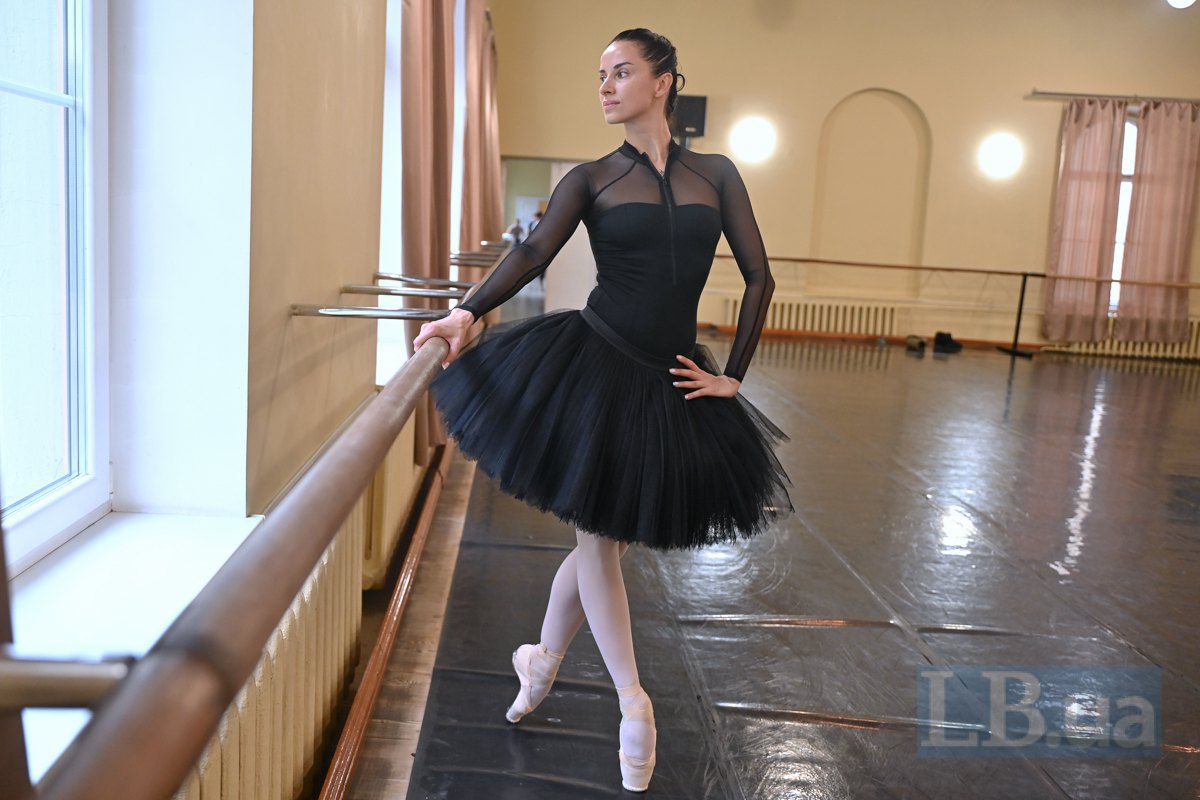
What impact did the competition have on young artists?
Firstly, you have a deadline for the competition, and that is very motivating. Secondly, you meet a large number of artists of a certain level on the same stage. This drives you forward, and if you are properly prepared, then you develop. Plus, you could show yourself to the jury, which at that time consisted of legendary choreographers and artists. It was an interaction. Young artists could get contracts and start interesting projects in different countries.
But this competition has been completely lost. I hope that it will be revived someday. But, of course, a lot needs to be done to restore its reputation. (The Serge Lifar Competition ceased in the mid-2000s due to lack of funding – Ed.)
"We need to put our emotions aside and take a deep dive into the issues of censorship."
How has the ballet world changed since the war, in your opinion? For example, interaction with Europe — there should be more opportunities, but are there really?
I believe we could be doing much more. A lot of opportunities have been lost during this period. Certain restrictions on the repertoire are unjustified (this refers to the ban on performing a wide range of supposedly Russian classics, as Nataliya herself says – Ed.). In particular, not only Tchaikovsky's ballets were cancelled, but also, for example, Khachaturian's Spartacus, Carmen Suite and others. These are rather ill-considered moves, which cannot be so frivolous at the level of state culture.
And who do you mean by "we"? The Ministry or institutions?
Everyone. But simply banning things is not the way to win. We need to put our emotions aside and take a deep dive into the issues of censorship.
Many problems arise from ignorance and a lack of depth in understanding the issue. I see many people in official circles who do not understand in principle what culture is and why it is needed, what is ours and what is not. These are also people who do not know how to formulate thesis. Unfortunately, I have not heard a single in-depth analysis during this time (I am referring to the analysis of the repertoire and the analysis of the Ukrainian affiliation of a particular composer – Ed.). As the director of the Metropolitan Opera said when he came to Ukraine, they cannot abandon the classical repertoire in New York (the theatre's official position is that they are not cancelling Russian classical productions solely because of their origin, but they have cancelled all cooperation with pro-Russian artists and the Bolshoi Theatre – Ed.), because he is the director of an international theatre. And which theatre do we belong to? We need to understand that if we want to communicate with the world in one language, we must respect the world's heritage. And we cannot, despite our desire to do so, attach any labels without deep analysis. I see the enormous damage that the rejection of the classical repertoire has done to ballet artists.
Ballet is a serious profession. If it is supported in the world by big sponsors and high-ranking officials, then perhaps there is some sense in it. But here, people often do not understand what it is and what they are getting into. They don't understand why ballet is needed, and that's the main problem. They perceive ballet simply as entertainment, but it's not entertainment, it's a serious art form. To train a ballet dancer, in addition to eight years of quality education, it takes six years to turn them into a "star". And that's still a very good option; it can take even longer.
And we have a section of the audience who can afford to buy any ticket and would rather pay £200 for a foreign ballet because they believe that they will not get enough of an experience in Ukraine. This is the level of our system, which does not allow us to show the whole ballet structure and raise it to the level that Europe would want to interact with. We have to offer ourselves, not just count on help. Europe is ready. But interaction must be interaction, not just a "one-sided game".
This is an academic profession that requires serious education. And this education has also declined significantly because no one cares about it. Ballet has its own "school", and it is not easy to get into. It is a large system of professional development: we had a galaxy of choreographers who, unfortunately, are now virtually gone. And in order to restore, create and grow all this, we need a high level of open cooperation between all participants in the process. There is a lot of work to be done.
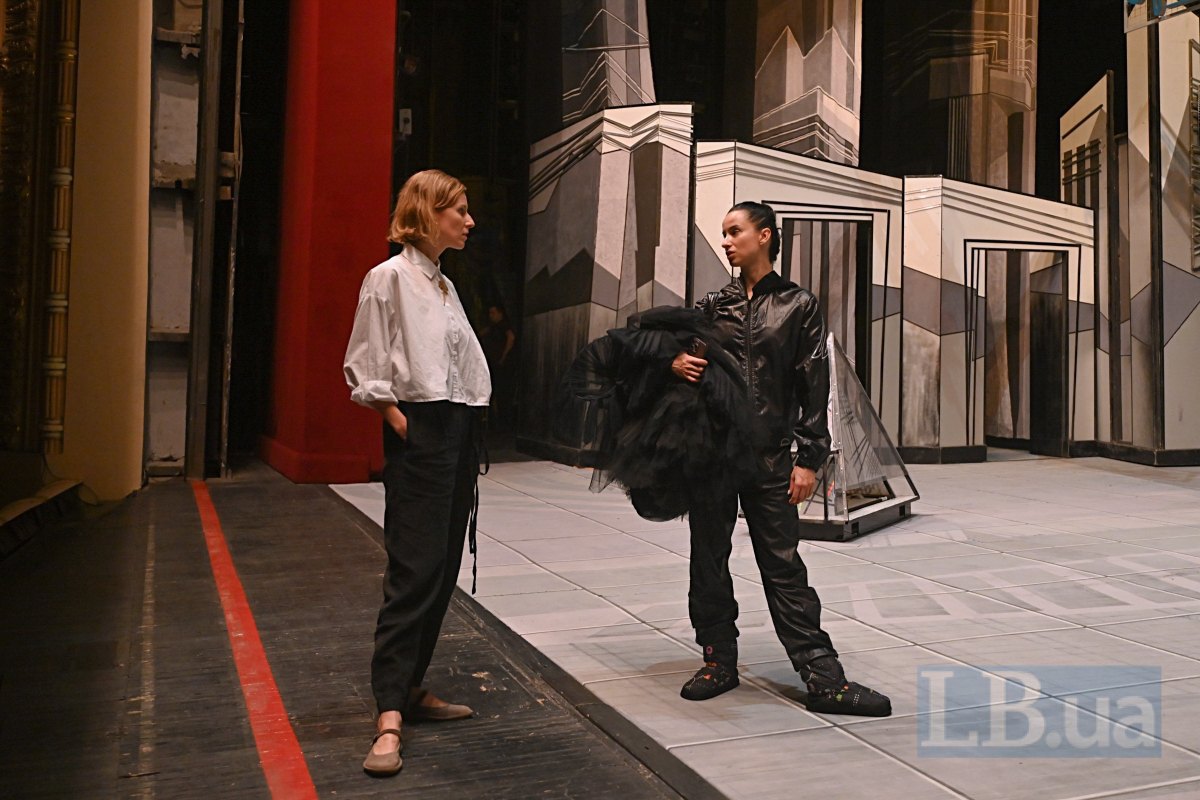
But the Metropolitan Opera is the United States, and it is a private opera that is not funded by the state. Its director does not care who is in power. Besides, the United States is also a neo-empire; indigenous Indian culture has been almost destroyed there. Don't you think that the voices we hear in the context of the "great international theatre" are mostly the voices of former empires?
And for this, we need to figure it out. Have Ukrainians figured out where their culture is? What belongs to us and what doesn't? Obviously, in order to understand who you are, you have to know your history. A lot of time has been lost, and we need to decide what we are going to do right now. Are we going to sit and shout that "we are not like that, and none of this is ours," or are we simply going to give up even what is ours (I am referring to the Ukrainian ethnicity of some composers and cultural figures in general, such as Gogol, Prokofiev, and the fact that all performances, even classics that are considered Russian, have our productions, made by our choreographers and directors, and danced by our troupe – Ed.).
Let's be objective: most of the world continues to use classical ballet. Right now, whether we like it or not, we have shown that we cannot fill the void left by the supposedly Russian repertoire. Yes, there was a strong surge at the beginning [after the large-scale invasion], we demonstrated our capabilities, that we can objectively be the best. But this has to happen on a regular basis — again and again — then Ukrainians will be invited more often [to perform], and we will be able to take advantage of this to promote our culture.
But for the reasons described above, this is not happening. Therefore, many people abroad are waiting for these "Russians" to come again, because they can offer the classics, they can bring what is in demand on the market. The market is very cynical: it will use this, Swan Lake and The Nutcracker are business. Tickets are selling fast. And those who buy them will not, unfortunately, delve into what is happening here.
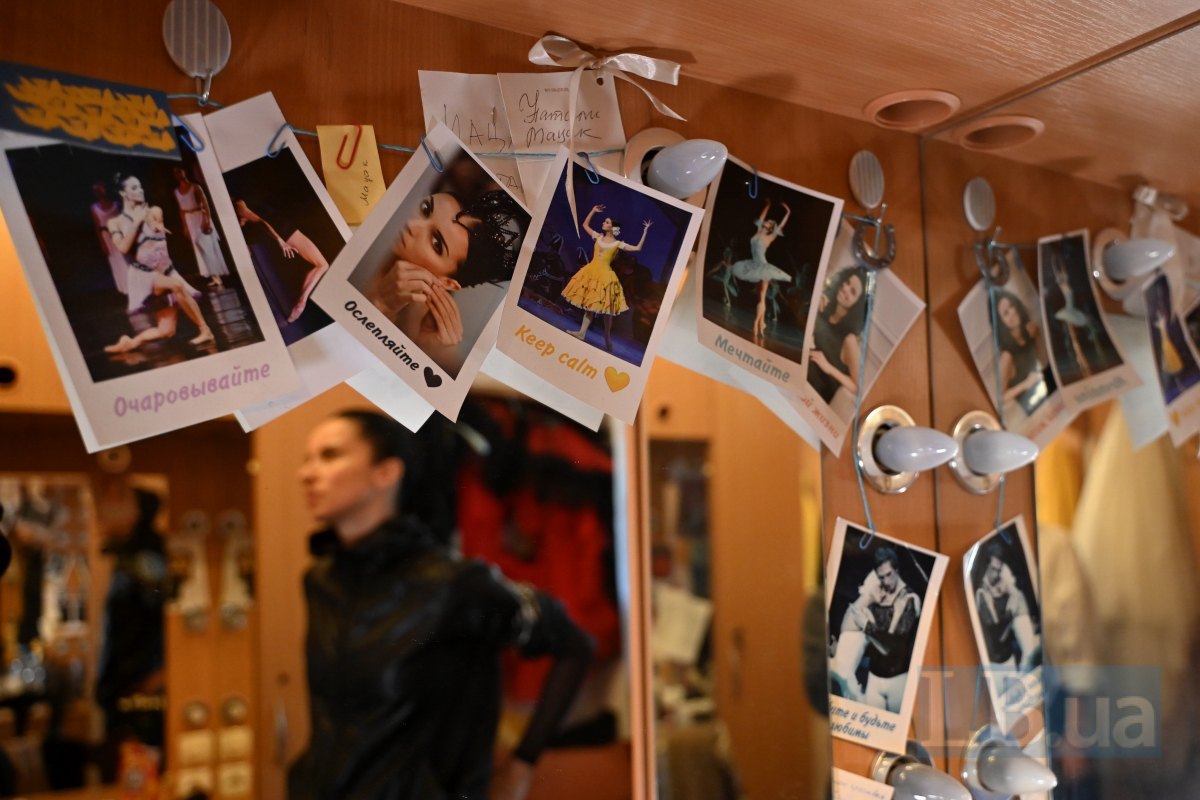
“Gergiev has nothing to do with Tchaikovsky. Heritage and the people who exist today are two different things.”
When Putinists, such as conductor Gergiev, are banned from performing abroad, do Europeans understand why this is happening?
We communicate with European impresarios, artists, journalists – they are very supportive of us and Ukraine, but in society this is starting to annoy people a little. Unfortunately, this is objective.
I am talking about something else. Europeans are blocking Putinists like Gergiev, but at the same time they say that not everything should be cancelled. So the question is: should we cancel or not? Because this is the path to the infamous "art outside politics".
Of course, art is not outside politics. Banning Gergiev is absolutely right; such figures should not appear in the cultural space while the war is going on. But Gergiev has nothing to do with Tchaikovsky. He has nothing to do with any composer who was born 200 years ago. This must be separated. Heritage and the people who exist today are different things; they are not one and the same. Russia is provoking us to play this game because their entire propaganda campaign is based on it. And if we did not ban it, we could make a huge leap forward during this time (I am referring to the performance of Tchaikovsky's works and other works from the classical repertoire that are in demand in Europe – Ed.). This applies to musicians, opera singers and ballet dancers. Then European audiences would not be so keen on Russians – there would be prospects of hearing new Ukrainian performers who would not only be on a par with them, but would be better.
Do you really think that European audiences would be able to tell the difference between Ukrainian and Russian performers?
Of course. Especially at the beginning of the invasion, when we were literally carried on people's hands. Then it would have been possible to seize incredible opportunities, open all doors, and from this high level, offer our culture. I am sure it would have worked, we would have been admired, we would have popularised our culture and heritage at a very high level.
Some people [primarily patrons of the arts] are trying to make a difference, but in general, our state system is dead and makes incomprehensible demands on artists. Even our media rarely takes an interest in such things. For example, I danced in the project Lesya about Lesya Ukrainka [directed by Artem Shoshyn]. It was really interesting and modern. With a few exceptions, it was impossible to get anyone to announce it.
By the way, are there any plans for international tours of the ballet Lesya?
There is a lot of talk about international tours, but it takes time, as with any Ukrainian product.
In my opinion, the theme of Lesya Ukrainka needs to be widely communicated to European audiences through storytelling, a specific campaign. A campaign where ballet is just one element. Unfortunately, people don't know much about her, and the "product" – excuse the term – is very cool, high-quality, and interesting to the world.
And in the middle of the country too. There was a case when teenagers came up to us after our performance and said that they now wanted to learn more about Lesya and read her works. So when you use visual means, in this case dance, to tell a story in a truly high-quality and professional way, it works wonderfully.
Another example: young people and designers are now adapting Ukrainian culture to new modern formats, and it's incredibly beautiful. But we lost many years by not offering our culture to the world. Back in the 2000s, I was struck by the fact that when we went on tour, we were often mistaken for Russian performers, because for many people, Ukraine didn't even exist on the map at that time. Obviously, this is not the artists' problem. And although a lot of time has been lost, we now have a unique chance to make a breakthrough.
What about international collaborations between our artists and world-renowned artists since the large-scale invasion?
Some choreographers were willing to simply give us their productions. But for a European choreographer with a serious reputation to give us a really good, large-scale performance, the name of the theatre to which he is giving it must be of a very high level. And European choreography differs from our school. Our teachers and staff need a lot of experience to be able to perform it. Therefore, it is impossible to do this in one day. Even without gifts, you can simply buy the copyright, which does not cost a fortune, but the entire theatre team must be of a certain level. Otherwise, we will not even be able to accept it. That's all.
All these problems are exacerbated by the departure of staff. A large number have already left, and more will leave. Because people don't see any prospects here. I would like my theatre to be famous all over the world, but unfortunately, the whole system in our country does not contribute to development. If culture is not relevant, then what are we fighting for? Culture is, first and foremost, our security.
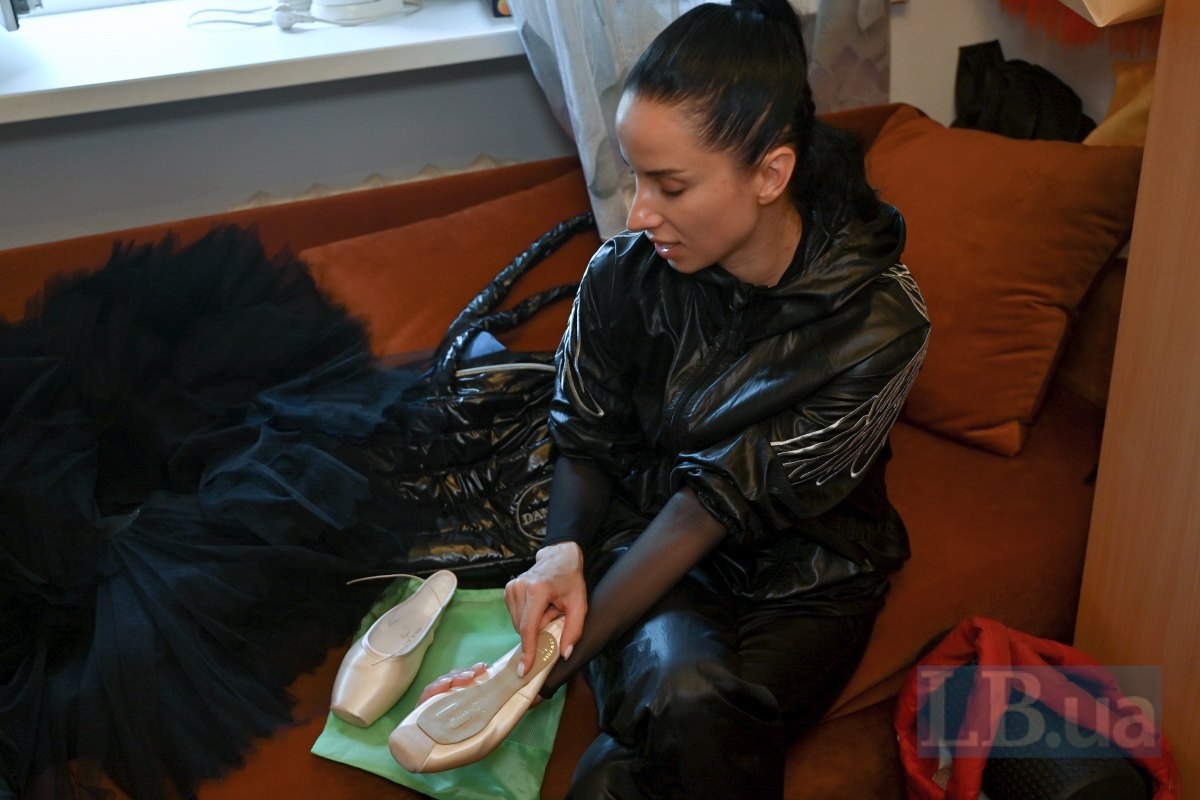
“European choreography differs from ours. It requires a great deal of experience on the part of teachers and the troupe to be able to perform it.”
What do you think will happen in ballet after the war ends?
Many things will simply return to how they were before. The border will open for Russians, and they will be welcomed in Europe. They will say, “Finally, you have arrived and will show us your level.” Because Ukrainians have not been able to show themselves for three and a half years and have effectively removed themselves from circulation, even though it was entirely possible to show and defend what is truly Ukrainian. And to fight them with their own weapons.
Okay, that's clear with the state. But does Ukrainian business understand the need to support culture?
Yes, this is a different business, a different generation. They are interested not only in income, but also in the development of the space where they and their children will live. I believe that this is about love for the country.
From an organisational point of view, it is easier for businesses to support because they manage the processes themselves and are not so dependent on the state. It is a different way of thinking, focused on results and development. In state institutions, I think it is a little different. Resources are spent on maintaining a system that has simply lost its meaning and relevance, unfortunately. And this is not even about a specific official or institution, but about the system as a whole. It needs to be restarted.
"I continue to perform the most difficult classical repertoire, which is considered the pinnacle of ballet mastery."
Let's talk about ballet as a profession. During rehearsal, you mentioned that some ballet standards are changing. What changes are taking place in the field?
Classical ballet remains classical, it is the foundation. But many directions and styles of contemporary ballet have emerged. The audience is expanding and segmenting.
Quarantine has opened up more space online. And this sometimes blurs the uniqueness of schools and styles of national ballets. That is, artists look at others and see the differences between schools, often wanting to copy, and this is not always good. Exchange is necessary, but I still think it is important for us to maintain our own school. That is, to use other experiences with caution.
I think this is also a system that needs to be regulated, because people need to understand that all schools and all countries have their own characteristics. And in Europe, they pay close attention to this. The war will end, and we will have to rebuild everything.
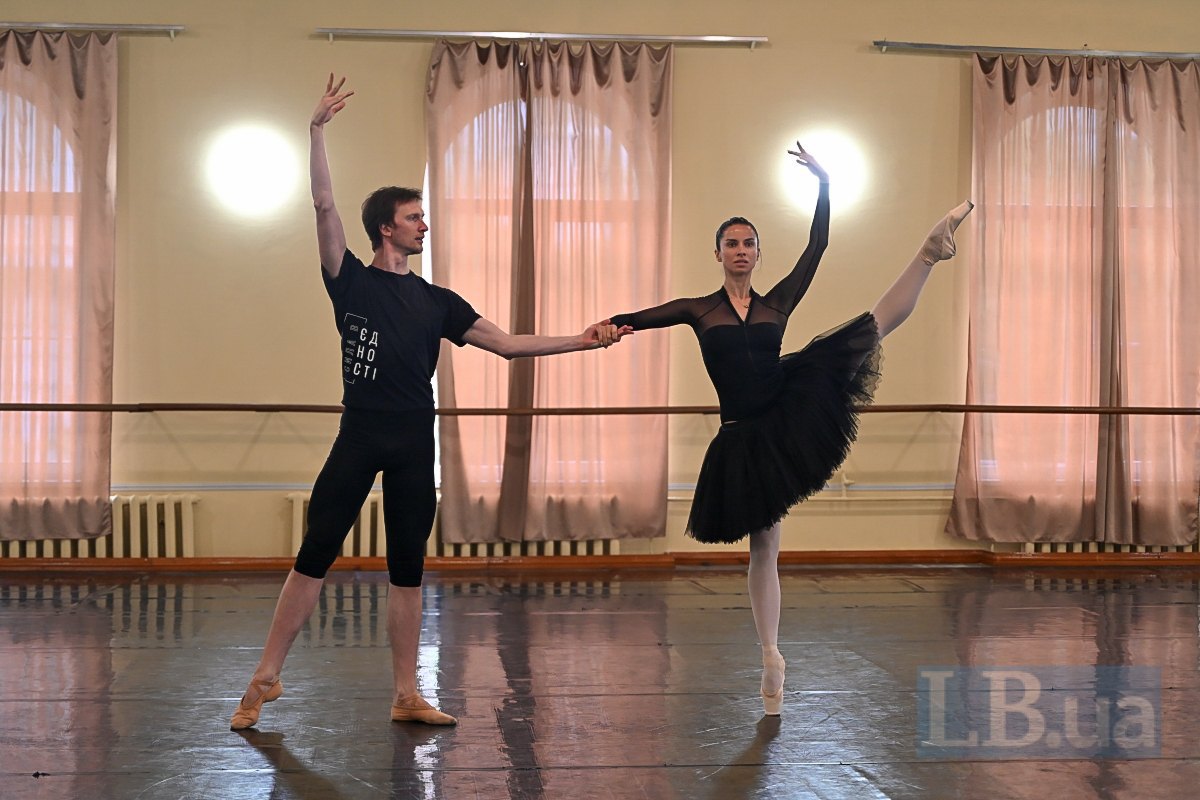
What kind of environment did you grow up in? Was anyone in your family involved in ballet?
My mother danced, but it was folk dancing and not for very long, but I didn't get to see it. Because she quit quite early.
No one else in my family was involved in ballet. But for some reason, when I was born, my dad said, "She'll be my ballerina." And he took me to classes when I was little. Unfortunately, he passed away when I was 12. After that, my mum took care of me on her own.
I was lucky with my teachers throughout my career, starting from childhood. I remember when I was 4 years old, I found myself in a group of adults and practised with them. I was very happy.
Did you have romantic ideas about ballet?
Of course, at that time I didn't understand what ballet really was. I thought it was about dancing, that it was fun, with beautiful costumes – my mother sewed a lot of costumes for me, even when I was in kindergarten. And then, when I got into the choreography school, the real ballet classes began, the barre began. When you stand facing the wall from morning till night and don't understand – you came for ballet, but where is it? (laughs).
It gradually dawned on me that it was very hard work. It's about a life in which you are constantly competing with yourself. In ballet, there is no such thing as "I don't want to today." You may not want to, but you have to. And your whole life will be like that. Unfortunately, it's a profession that you can't just "put in your pocket." Every day you have to put in a lot of effort to maintain a certain level. I'm not even talking about how much effort it takes to move forward.
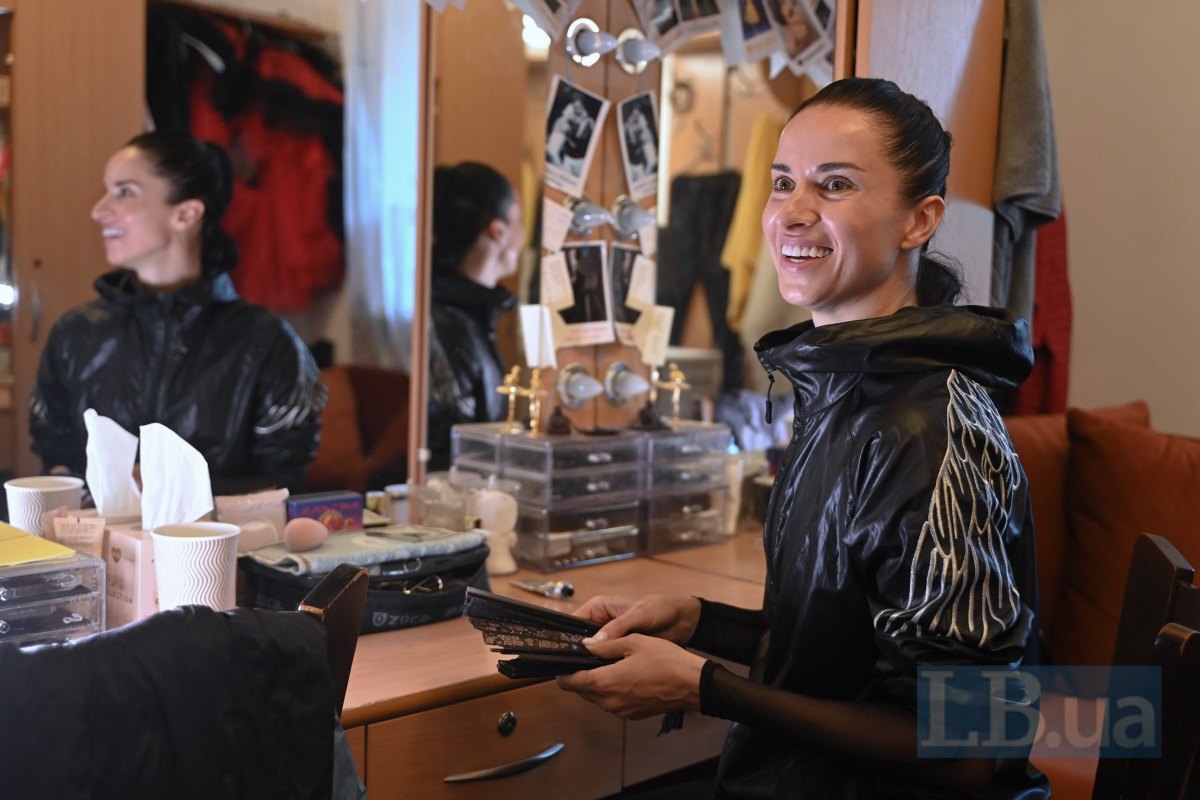
And it's impossible to keep track of...
And so it is every day. If you miss something, even a little, it's already a step backwards. Over the years, it has become very difficult to maintain a special motivation for this.
Weren't you afraid of this dependence on your body in ballet? That it might "give out" at some point?
If you don't help your body in other ways, for example, with additional training – fitness, weight training, cardio – it will fade very quickly. Therefore, artists who are exclusively involved in classical ballet and have no experience of different physical activities lose a lot of resources.
When you dance classical ballet, one group of muscles has one task, another has another, and there can be an imbalance. That is, some muscles weaken, while others take on all the load. And you must have a very strong muscle corset.
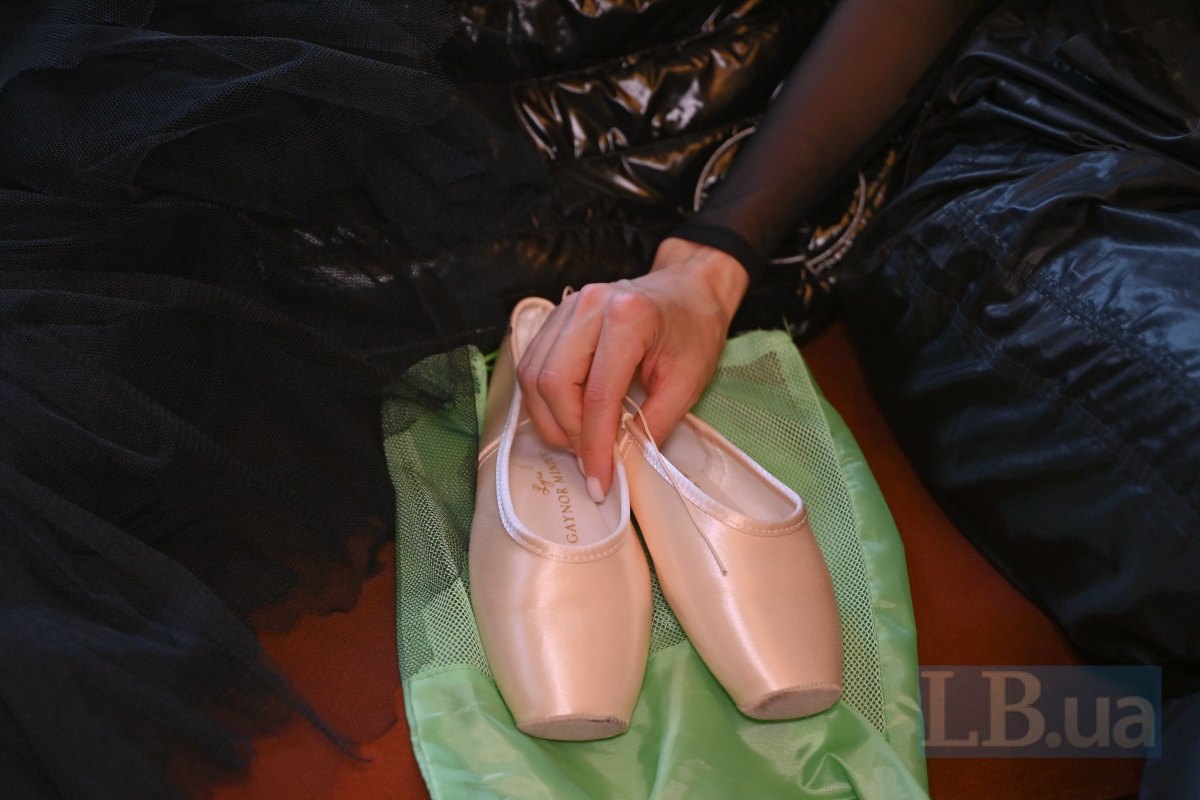
How does ballet affect your life outside of ballet? Do ballet standards permeate your everyday life? For example, the age limit for ballet is still considered young in everyday life.
It is very difficult to separate ballet from the rest of my life when ballet takes up almost all of my life (smiles). Of course, you try to distract yourself sometimes, to pursue your hobbies, but everything will still be related to ballet and for ballet. It is a very difficult profession, it requires unreal concentration. I used to think that rehearsals took up a lot of time, but then my husband and I launched a ballet clothing brand, and teaching was added to the mix. People ask me, "How do you manage to do it all?" We manage as best we can.
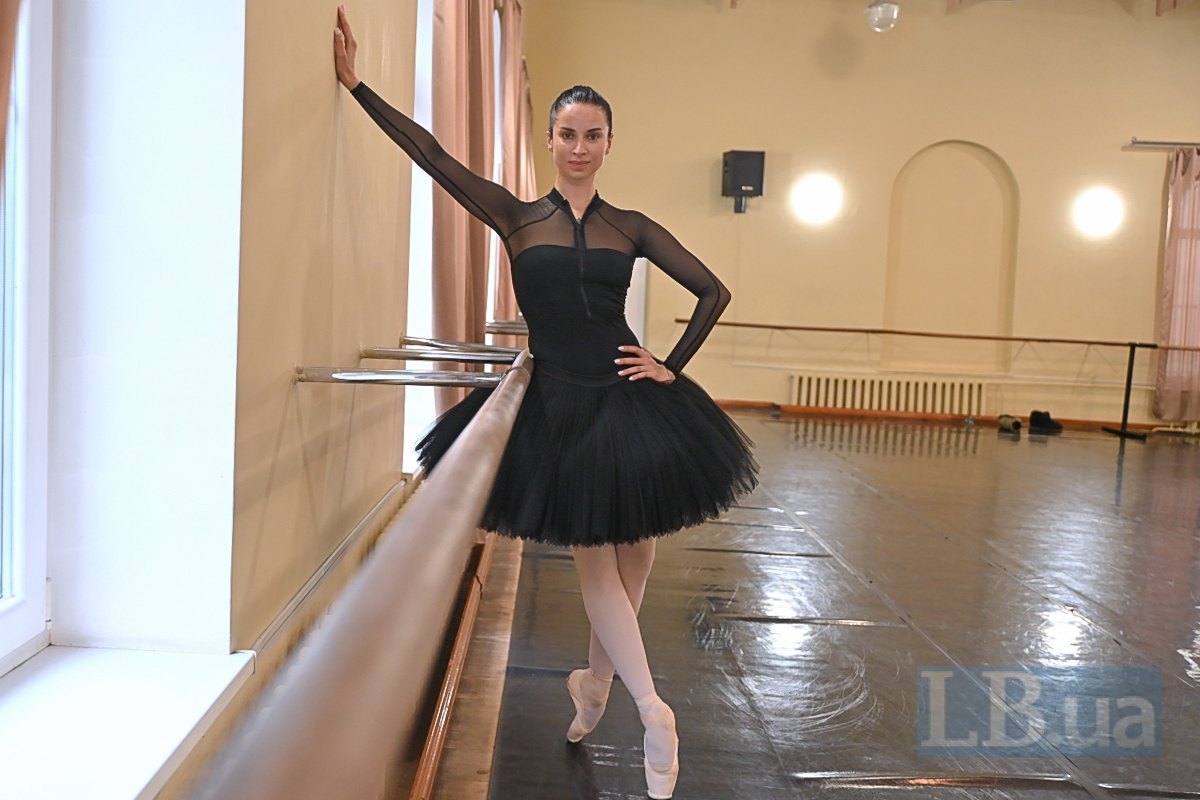
And teaching is a big part of my life. It's not just rehearsals, but working with the team. I teach a class several times a week – it's a morning workout for the team, a warm-up. Then I have my own rehearsal, followed by a rehearsal with a young ballerina whom I mentor. I didn't think I would become a teacher. It happened gradually. At first, I was asked to help with Viktor Ishchuk's ballet Eyes Wide Shut, and then the work came one after another. I am very happy with this experience because it is incredible. I don't know how things will turn out in the future, but I am grateful for what I have.
A few years ago, I suffered a very serious injury, and I didn't even dream of returning to the stage. But miraculously, I recovered in two years. It took a lot of effort. But today I am dancing fully and have returned to the stage. I don't know how long I will remain in this profession, but I want to get the most out of it. I really like how the audience has changed – they have become more active and attentive, and that is extremely pleasant. It means that you are needed – and you go back on stage.
It's interesting that the age at which a ballerina's career ends is the age when you're just starting to do something serious. So I don't know what lies ahead for me, but I trust life.









